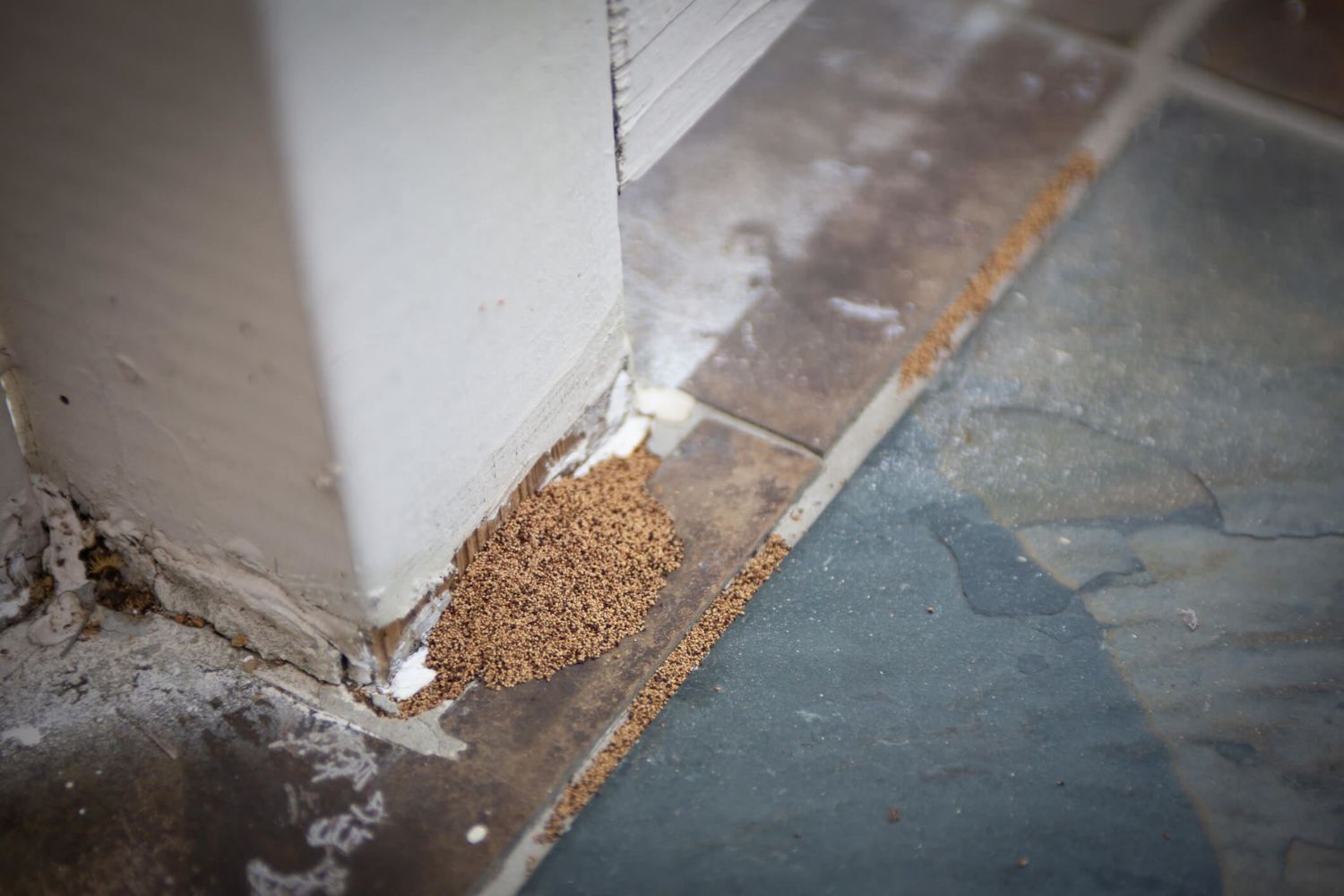Termites can be found just about everywhere in the continental U.S., and Massachusetts is no exception. While most people are familiar with termites and know these pests can cause a lot of property damage, what attracts termites is not exactly common knowledge. This can lead many to unwittingly “invite” these pests to their property.
Types of Termites in Massachusetts
In Massachusetts, there are primarily three types of termites that can cause structural damage to properties:
Eastern Subterranean Termites (Reticulitermes flavipes)
Eastern subterranean termites are the most common and destructive species in Massachusetts. These termites live in underground colonies and construct mud tubes to access above-ground food sources. They feed on cellulose materials, such as wood and paper, and can cause significant damage to homes and buildings if left untreated.
Eastern Drywood Termites (Incisitermes aculeatus)
Although less common than subterranean termites, eastern drywood termites can still be found in Massachusetts. Unlike subterranean termites, drywood termites do not require contact with the soil and infest dry, sound wood directly. They can establish colonies within wooden structures and cause localized damage.
Formosan Termites (Coptotermes formosanus)
Formosan termites are not native to Massachusetts but have been found in some coastal areas due to their introduction through infested wooden materials. These termites are known for their aggressive behavior and large colonies, leading to rapid and extensive damage to structures.
5 Things that Attract Termites
Rather than treating a termite infestation, the ideal scenario is to avoid a termite problem in the first place. Below, our Boston termite control experts will explain some of the ways your home could be attracting termites without you realizing it.
1. Clogged Gutters and Other Drainage Issues
When your gutters are full of leaves and branches, a couple of things happen:
- The debris clogging your gutters starts to rot in standing water, which is very enticing to termites.
- Water can start overflowing and spilling out against your home, making the roof, siding, and foundation soggy. Soft, wet wood is typical food for termites, so this can invite the pests to start chewing away at your home.
If you have any source of drainage problems around your home, whether it’s from a sprinkler system or an air conditioning unit, you’ll want to solve the problem to avoid attracting termites and other pests as well.
2. Rotting Wood Around Your Property
As mentioned above, rotting wood is a major food source for termites, so it’s bound to attract them. Once the weather warms up in spring, termites will begin swarming in search of mates and new places to start colonies. Before “swarming season,” it’s a good idea to get rid of any stumps in your yard and clear out fallen branches and twigs.
3. Mistakes With Mulch
Because mulch helps keep moisture in your garden beds, it can get quite damp, creating an attractive environment for termites. When it comes to mulch, the material doesn’t matter as much as the thickness and application.
Here are some tips to avoid attracting termites with mulch:
- Your mulch layers should be less than three inches deep.
- Apply a new mulch layer every three years.
- Make sure your mulch is no less than six inches away from where your home’s foundation meets the siding.
4. Lumber Stored Too Close to Home
Even though it’s convenient to keep firewood on the porch, it’s one of the easiest ways to bring on a termite infestation. Instead, store your woodpile at least 30 feet away from your home, and make sure that it’s at least 5 inches off the ground.
5. Dense Vegetation and Garden Debris
Whenever possible, remove dense vegetation and garden debris near your home and other structures on your property. Things like shrubs, vines, tree lines, and fallen leaves left to rot will trap moisture and make it difficult to inspect your home for termites. They also create favorable conditions for wood decay.
Schedule a Termite Inspection Now!
If you suspect a termite infestation in your Massachusetts property, it is crucial to seek professional pest control services immediately. Termite damage can be severe and costly to repair, so early detection and intervention are essential to protect your investment and ensure the safety of your home or building. A licensed pest control expert can conduct a thorough inspection and implement appropriate termite control measures to safeguard your property.
If you suspect your home may have a termite infestation, don’t hesitate to contact our Boston termite control experts at Pestex Inc to inspect your property thoroughly. Call us today at (617) 332-3344 or contact us online







